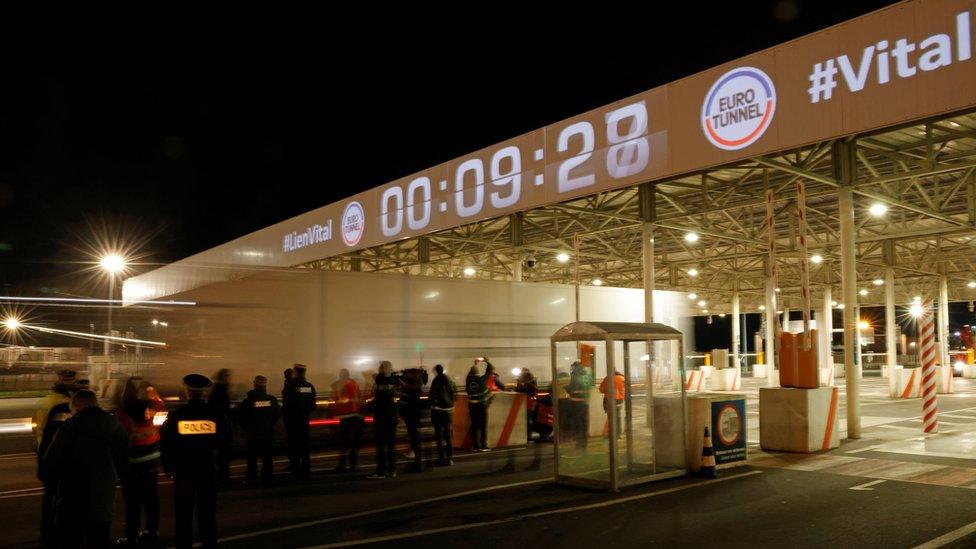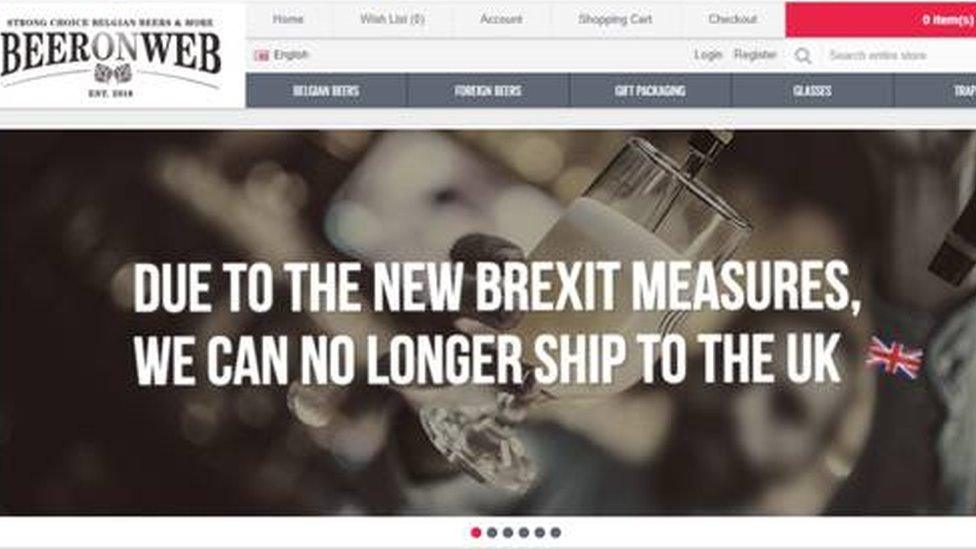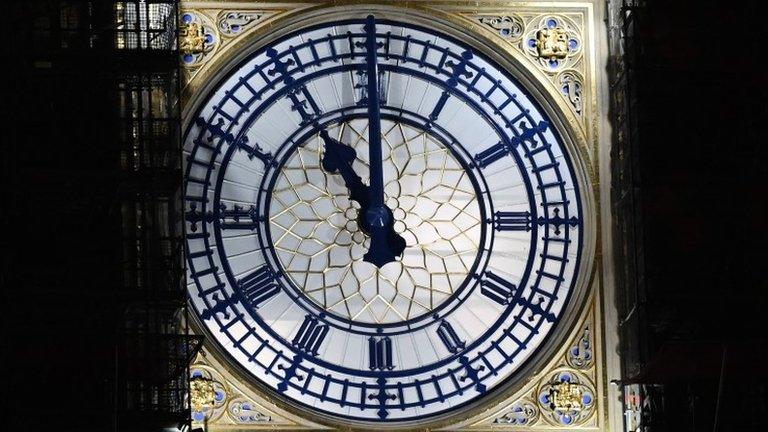Brexit: Calais traffic slow as new border controls face first test
- Published

France has spent millions on a new "smart border system"
New border controls between the UK and the EU faced their first real test today, but traffic was slow following the New Year break.
A post-Brexit trade agreement signed last month means there are no tariffs on goods sent across the English Channel to France.
But new regulatory and customs checks do apply.
More than €50m (£45m; $61m) have been spent on preparing the French side of the Channel for this moment.
The money was spent on new buildings to carry out the checks, more staff, more car parks and a so-called smart border system designed to keep traffic moving.
But by midday on Monday, customs officials at the port of Calais were still waiting to check their first vehicle of the day.
It was a similar story at the Channel Tunnel. France's new smart border system - designed to move most of the customs process online - appeared to be working smoothly. Only lorries that require extra checks are stopped.
"Brexit is not synonymous with congestion!" the president of Calais port, Jean-Marc Puissesseau, told me.
But it is too soon to cry victory. Commercial traffic across the Channel was less than 20% of normal levels on Monday, and the major test will come in the next few weeks when smaller companies return and volume begins to grow.
Border controls here would be a lot more cumbersome if the UK government had not signed a trade agreement with the EU last month.
What Brexit means for Britons travelling, shopping, studying or owning properties in the EU.
France's junior minister for trade relations, Franck Riester, told the BBC the agreement was based on a mixture of good faith and concrete checks. He also questioned what the UK's new trade freedom amounted to.
"The idea that, in the future, we are going to trade with countries on the other side of the world rather than with our neighbours is, in my opinion, completely out of date," he said.
"We believe that [they] will be weaker in negotiating good trade deals in the future than when they were in the EU," he added.
"It is important that the UK does not become an unfair competitor," Mr Riester continued. "We want it to remain a great partner of France and not a partner who would use unfair means, with state aid, or with divergent standards to the EU."
So, after years of preparation, both the politics and the logistics of Brexit have been rehearsed many times. Now they're being put to the test.

What's changing?
The culmination of the Brexit process means major changes in different areas. These include:
The free movement of people between the UK and EU countries has ended - and has been replaced in the UK by a "points-based" immigration system, external
Anyone from the UK who wants to stay in most of the EU for more than 90 days in any 180-day period now needs a visa
Duty-free shopping has returned,, external with people coming back to the UK from the EU able to bring up to 42 litres of beer, 18 litres of wine, four litres of spirits and 200 cigarettes without paying tax
EU citizens wanting to move to the UK (except those from Ireland) face the same points-based system as people elsewhere in the world
UK police have lost instant access to EU-wide databases on criminal records, fingerprints and wanted persons.


Related topics
- Published4 January 2021

- Published1 January 2021

- Published1 January 2021